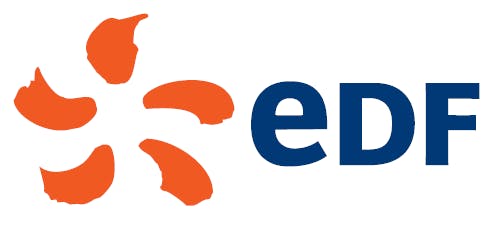3. Non-financial performance
3.2 Preserving the planet’s resourcesStorage
In a changing energy environment, EDF launched its Electric Storage Plan in 2018 to accelerate its development in this sector with the aim of becoming the European leader in this area. A pioneer in the field, the Group is already present in the main areas of application of storage technologies, in particular batteries and Pumped Energy Transfer Stations (hydraulic ETS).
EDF aims to develop 10GW of new storage facilities across the world by 2035 in addition to the 5GW already operated by the Group. EDF’s goals cover all electricity storage markets in order to ensure the proper functioning of the balance between the electricity system, private and business customers and regions. The micro grids (isolated grid supply) and off-grid (no grid access) market segments also contribute to the Group’s storage aim. EDF is also aiming to develop a portfolio of 1 million off-grid kits by 2030. EDF has therefore invested in a number of off-grid electrification companies, particularly in the Ivory Coast, Ghana, Kenya, and Togo. The Group’s off-grid customer portfolio is growing regularly (also see section 1.4.5.3.9 “Off-grid energy”).
The Group’s storage project portfolio is growing dynamically. The current combined capacity of projects built or secured is 800MW. The main aim of the projects developed is to offer services that support the electricity system and mesh with renewable energy production to defer renewable energy dispatch onto the grid. R&D work is underway to facilitate the development of the Group’s projects. R&D, for instance, aims to contribute by qualifying equipment and making facilities easier to operate.
3.2 Preserving the planet’s resources
EDF is committed to limiting its environmental footprint throughout the life cycle of its facilities and activities by optimising the use of natural resources. The four main CSR commitments identified in this set of issues concern biodiversity, responsible land management, integrated and sustainable water management, the circular economy and waste management.
PRESERVING THE PLANET’S RESOURCES
CSR COMMITMENTS | CONTRIBUTION TO THE UN SD GOALS | KEY PERFORMANCE INDICATORS |
|---|---|---|
BIODIVERSITY |   | BIODIVERSITY KEY PERFORMANCE INDICATORS Achievement rate of Group commitments under the "Act4nature international" initiative |
RESPONSIBLE LAND MANAGEMENT |  | RESPONSIBLE LAND MANAGEMENT KEY PERFORMANCE INDICATORS Qualitative evaluation |
INTEGRATED AND SUSTAINABLE WATER MANAGEMENT |    | INTEGRATED AND SUSTAINABLE WATER MANAGEMENT KEY PERFORMANCE INDICATORS Water intensity: water consumed / electricity generated by fleet |
WASTE AND CIRCULAR ECONOMY |   | WASTE AND CIRCULAR ECONOMY KEY PERFORMANCE INDICATORS France: volume of long-lived high and intermediate level solid radioactive waste |
CSR COMMITMENTS UK: volume of low level radioactive solid waste generated |
3.2.1 Biodiversity
3.2.1.1 EDF group’s commitment


Carbon neutrality issues are inextricably intertwined with EDF’s long-standing commitment to biodiversity(1). In 2020, the Group is renewing its commitment through two state-supported voluntary schemes: “Entreprises engagées pour la nature - act4nature France” (Companies committed to nature - act4nature France)(2), under the aegis of the French Biodiversity Office; “Act4nature International”(3), under the aegis of the association "Entreprises pour l’environnement" (Epe) (Companies for the Environment).
The EDF group’s commitment is structured along the following lines:
- reducing its activities’ contribution to major pressure factors (as identified by IPBES(4));
- recreating spaces and conditions that promote biodiversity;
- improving and sharing knowledge;
- strengthening the governance of biodiversity issues and raising employee awareness.
In 2020, EDF is introducing a new key performance indicator for biodiversity. This indicator reflects the Group’s “Act4nature international” commitments. The objectives are certified in the “Act4nature international” external system. The indicator is calculated as a rate of fulfilment of actions undertaken from 2020 to 2022 aimed in particular at reducing the Group’ activities’ contribution to major pressure factors and strengthening the governance of biodiversity issues.
(1) EDF established a Group-wide biodiversity policy back in 2006.
(2) "Entreprises engagées pour la nature-act4nature France" (Companies committed to nature-act4nature France) aims to encourage the emergence, recognition and promotion of action plans in favour of biodiversity led by French companies.
(3) "Act4nature International" is an initiative launched by the French association of Enterprises for the Environment (EpE) which aims to mobilise companies on an international scale to address the issue of how they directly and indirectly impact the environment, how they rely on the environment and how they can help nature.
(4) IPBES is the Intergovernmental Science and Policy Platform on Biodiversity and Ecosystem Services.
